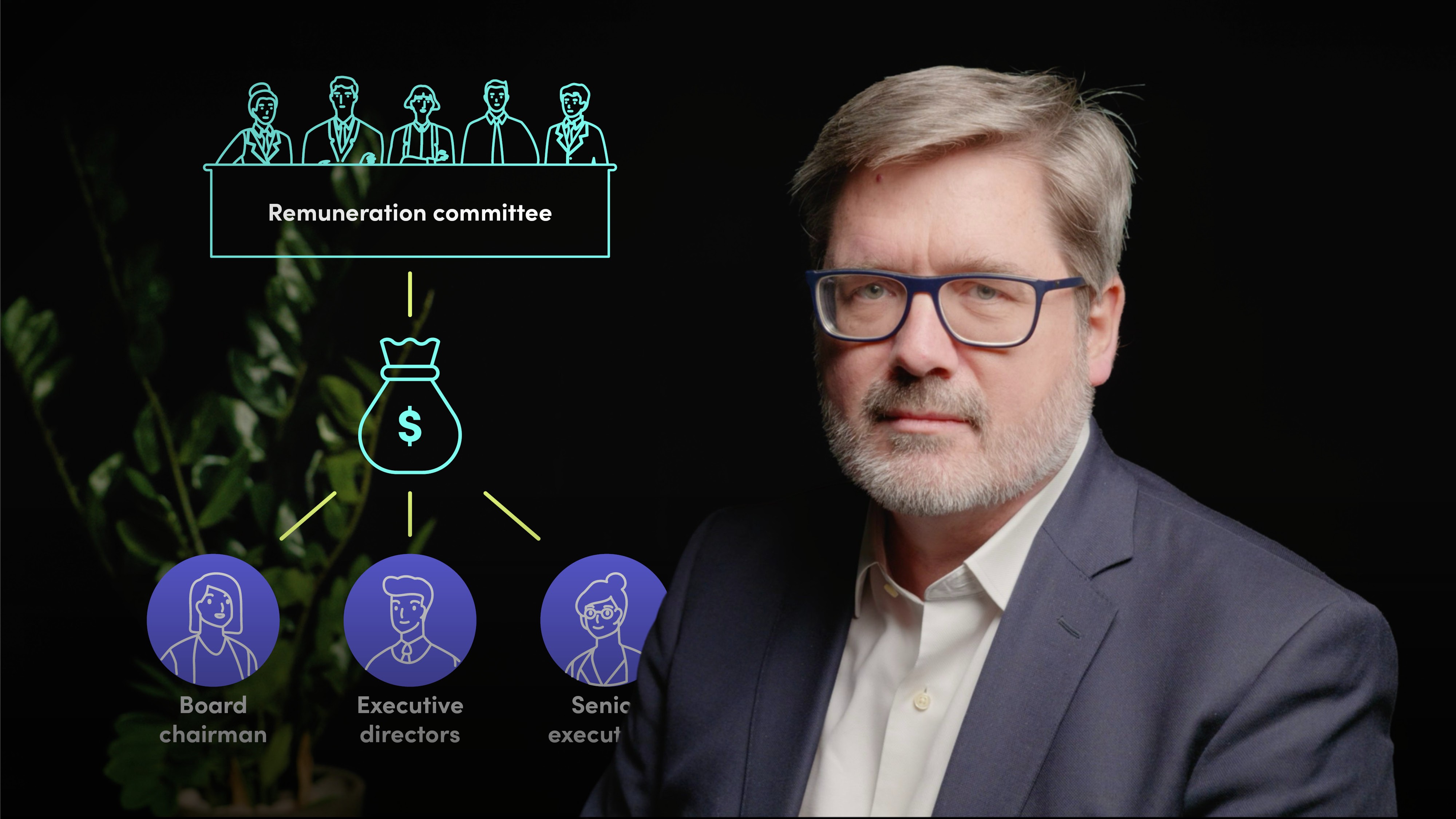
Board Remuneration Committees

Bill Gallagher
30 years: Credit & banking
In this next video on Board Governance, Bill Gallagher introduces remuneration committees and discusses their role and key responsibilities within a company.
In this next video on Board Governance, Bill Gallagher introduces remuneration committees and discusses their role and key responsibilities within a company.
Subscribe to watch
Access this and all of the content on our platform by signing up for a 7-day free trial.

Board Remuneration Committees
10 mins 12 secs
Key learning objectives:
Understand the importance of the remuneration committee
Outline the primary goal of a remuneration committee
Outline the responsibilities of a remuneration committee
Overview:
Remuneration committees are established to set and oversee the compensation of senior management in a company. Their purpose is to ensure that pay is aligned with the company's strategic goals, fair, and transparent. They address potential conflicts of interest that may arise if senior management sets their own pay policies. In addition to protecting shareholder interests, remuneration committees also help reinforce the company's strategic goals and targets to investors and other stakeholders.
Subscribe to watch
Access this and all of the content on our platform by signing up for a 7-day free trial.
What is the primary goal of a remuneration committee?
The primary goal of a remuneration committee is to ensure that executive compensation is set in the best interests of shareholders and the long-term sustainable growth of the company. By overseeing the compensation packages of senior executives, the committee aims to prevent executives from establishing their own pay and instead align compensation with the company's strategic goals and values. This helps motivate senior employees and reinforces the desired corporate culture and objectives.
What are the primary responsibilities of a remuneration committee?
The primary responsibilities of a remuneration committee typically include two main areas of focus
Firstly, deciding the remuneration of all executive directors and the chairman
Secondly, recommending and monitoring the level and structure of remuneration for senior management
What is the typical composition of a remuneration committee?
The typical composition of a remuneration committee consists of independent, non-executive directors. These individuals are selected based on their expertise, experience, and ability to provide objective judgment regarding executive compensation. They are not involved in the day-to-day operations of the company, ensuring independence in decision-making.
The committee may consist of three or more members, with at least one member having expertise in financial matters or executive compensation. In some jurisdictions, specific regulations and listing rules require certain qualifications or expertise for committee members.
Subscribe to watch
Access this and all of the content on our platform by signing up for a 7-day free trial.

Bill Gallagher
There are no available Videos from "Bill Gallagher"





























